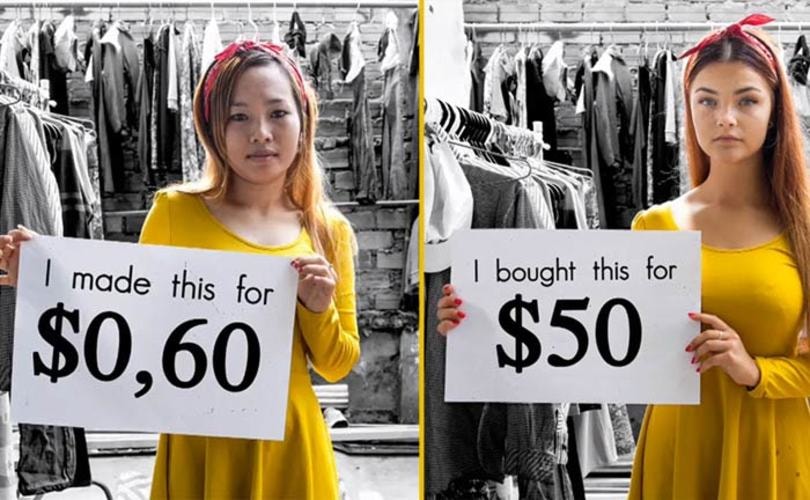The UK spends £27 billion on clothing every year. But what is the real cost of fashion? Molly Alee looks at the impact of our fast fashion habits.
In today’s throwaway culture 1/3 of women consider garments which are worn only twice to be considered old. With the rise of fast fashion companies who offer promotions such as the Pretty Little Thing ‘£1 Bikini’ it is no surprise that consumers have this attitude. After all, who doesn’t love a bargain??? Nonetheless, it is about time that we start to consider what impact this is actually having on our world.
According to The Guardian, polyester pollution of rivers, lakes and oceans is one of the most detrimental effects caused by the rise in fast fashion culture. New studies indicate that the fibres in our clothes could be poisoning our waterways and adding to the plastic in our oceans. As a result, this plastic is being consumed by fish and wildlife and making its way into the food we eat.
Adding to this is the amount of plastic packaging used by fast fashion companies. ASOS alone sources more than 59 million plastic mail bags every year – only 20% of this plastic can be recycled. Thus, it is ending up in landfill alongside the 300,000 tonnes of textiles sent by UK consumers each year.
What is even scarier than these statistics is the treatment of garment workers around the world due to fast fashion brands wanting to keep profits high and costs low. To achieve this, it is not uncommon for companies to cut corners on the health and safety of factories and garment workers’ wages. According to Global Labour Justice female garment workers in H&M and Gap supplier factories in Asia have to face abuse, poor work conditions and low wages. Even though we spend so much money on fast fashion every year, it is quite clear that the garment workers are
paying the real price.
So what can we do about this? For starters we could simply buy less clothing. Instead, we should invest more money into an item that will last. Researching what you are buying and the ethics of the company you are buying from is also important so we’re not fuelling maltreatment of garment workers. You could start a clothes swap with friends or just simply recycle your clothing. Buying from second hand and vintage stores is also a great way to reduce the true cost of fashion.
Indeed, Leeds is home to many second hand and vintage shops. Be sure to check out Blue Rinse, Pop Boutique and Best in town this year. Also look out for the Leeds University Fresher’s Vintage Clothing Sale on 27th September.

